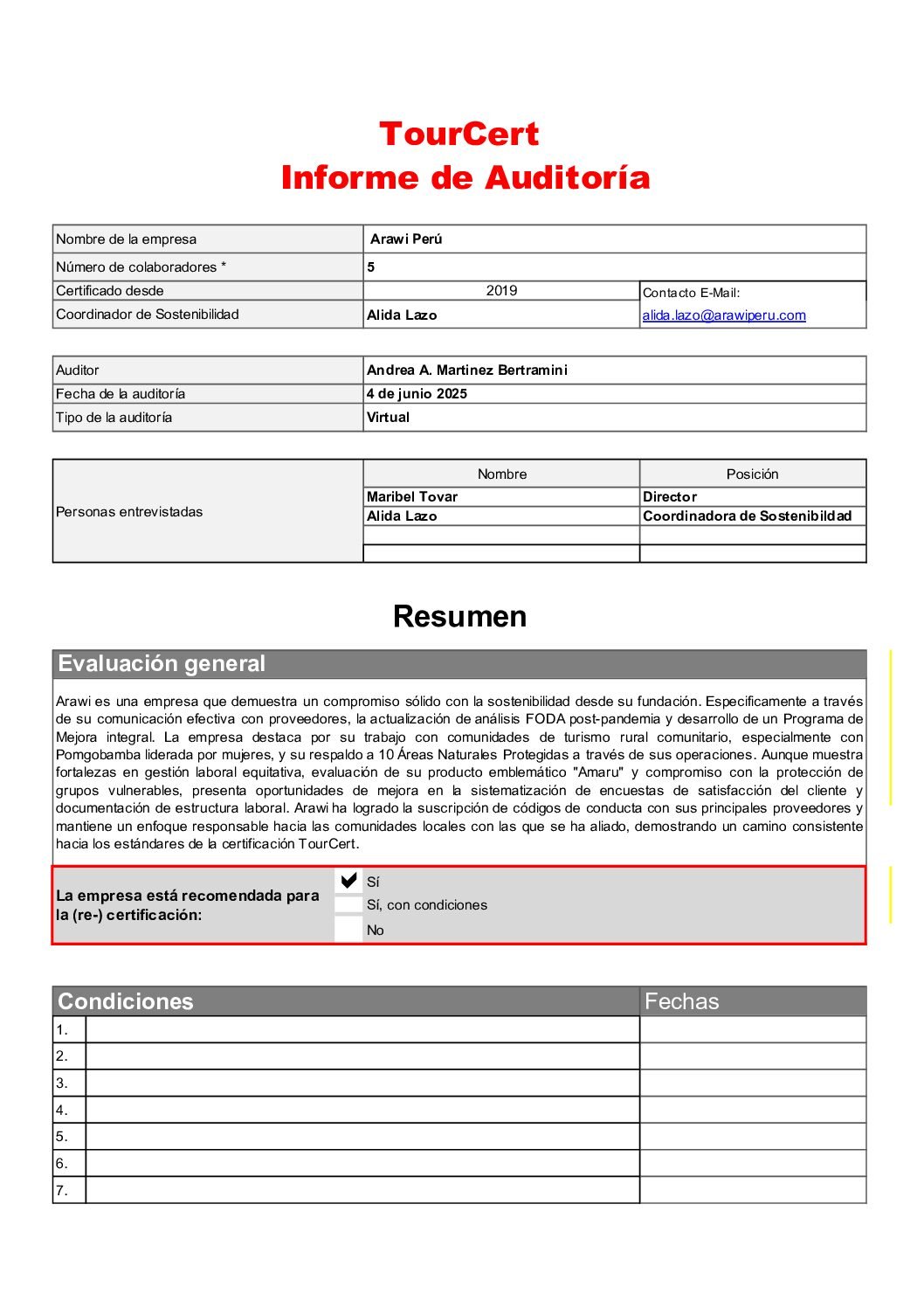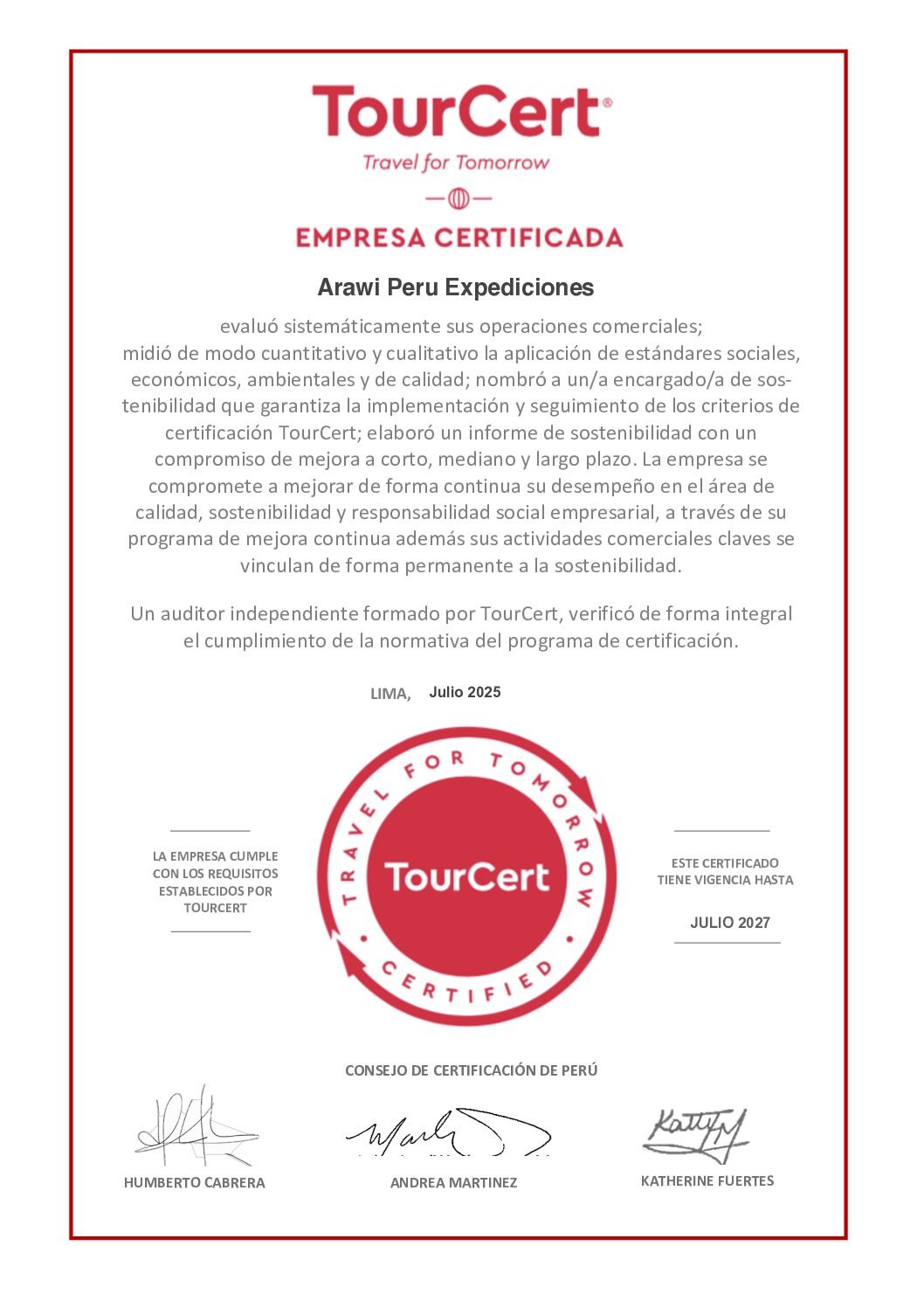Responsible Journeys
Transform the way you travelTourism can protect the environment and cultural diversity while promoting balanced local development. Its success relies on the collaboration of travellers, guides, tour operators, local communities, and both public and private sectors.
Our Commitments
Aligned with the United Nations Sustainable Development Goals, Arawi prioritizes the following key objectives from the 2030 Agenda, focusing on those within our scope and capacity to make a meaningful impact.



Our commitment to responsible tourism aims to create positive impacts on the destinations we visit, fostering a more ethical, inclusive, and sustainable travel experience.
Read our Sustainability ReportWhat we do
We prioritize local commerce
Selecting local, family-owned, and small-scale services to foster community development and promote authentic experiences.
We respect the local carrying capacity
Limiting shared service groups to a maximum of 16 people to ensure a more intimate and sustainable experience.
Authenticity
Our itineraries are designed to preserve the authenticity of local customs and traditions, avoiding practices that artificially alter them for tourism purposes.
Sustainability across operations
Our service and accommodation providers must sign a commitment letter that identifies and promotes sustainability aspects in their operations.
We are dedicated to equality and inclusion
With a zero-tolerance policy towards discrimination based on gender, race, beliefs, sexual orientation, or any other factor.
We uphold fair labor conditions
Promoting integrity, equitable wages, and respect for workers’ rights.
Recycling policy
We have minimized paper usage and use recycled paper for marketing materials (cards and brochures).
Code for child protection
We are committed to the fight against the Sexual Exploitation of Children and Adolescents in tourism (ESSNA), signing codes of conduct for child protection.
What you can do
Your journey can positively impact local and family economies while preserving the environment, cultural diversity, and social balance. However, irresponsible practices can harm these aspects.
Respect local culture
Support the local economy by purchasing handicrafts and local products and paying a fair price.
Minimize waste: reduce your environmental impact by avoiding plastic use, using recycling bins whenever possible and saving water.
Respect wildlife and their natural habitats
At archaeological sites, follow designated paths and routes. Do not climb walls, leave marks, or alter the site in any way
Respect human rights and protect children from exploitation
Respect local culture
Support the local economy by purchasing handicrafts and local products.
Minimize waste: reduce your environmental impact by avoiding plastic use, using recycling bins whenever possible and saving water.
Respect wildlife and their natural habitats.
Respect human rights and protect children from exploitation
At archaeological sites, follow designated paths and routes. Do not climb walls, leave marks, or alter the site in any way.
Empowering Women in Tourism
We believe and actively work in the empowering of women, by:
Supporting female entrepreneurs and community tourism leaders
Promoting women as tour guides
Creating experiences and content that celebrate the incredible contributions of Peruvian women—past and present
Doing research on gender focused related issues, products and creations
Communities we work with
Peru is home to hundreds of indigenous communities, preserving ancestral traditions in agriculture, cattle ranching, and craftsmanship. Their knowledge, from agricultural or textile techniques to Andean cosmology, represents invaluable cultural heritage.
Tourism can boost growth and competitiveness, but it must be approached with care, technical guidance, and balance — serving as a complement, not a replacement, to local economies.
Certifications and Projects
We are a Registered Company
Arawi Perú is a formal company, registered in the National Directory of Qualified Tourism Service Providers of the Ministry of Tourism (MINCETUR), in full compliance with Peruvian legislation.
CO2 Calculator
The tourism industry plays an important role in relation to climate change and its consequences.
By supporting projects that counteract – at least partially – these effects, you can calculate and offset the CO2 emissions related to your flights:
Fighting Child Sexual Exploitation
Our agency is firmly committed to fighting child sexual exploitation in tourism by adhering to the ESSNA code of conduct
Report any suspicious situation to the authorities:
National Tourism Police: +(511) 225-8698 / 225-8699 / 476-9882.
Engaging in sexual relations with minors in Peru is punishable by up to 35 years in prison.


